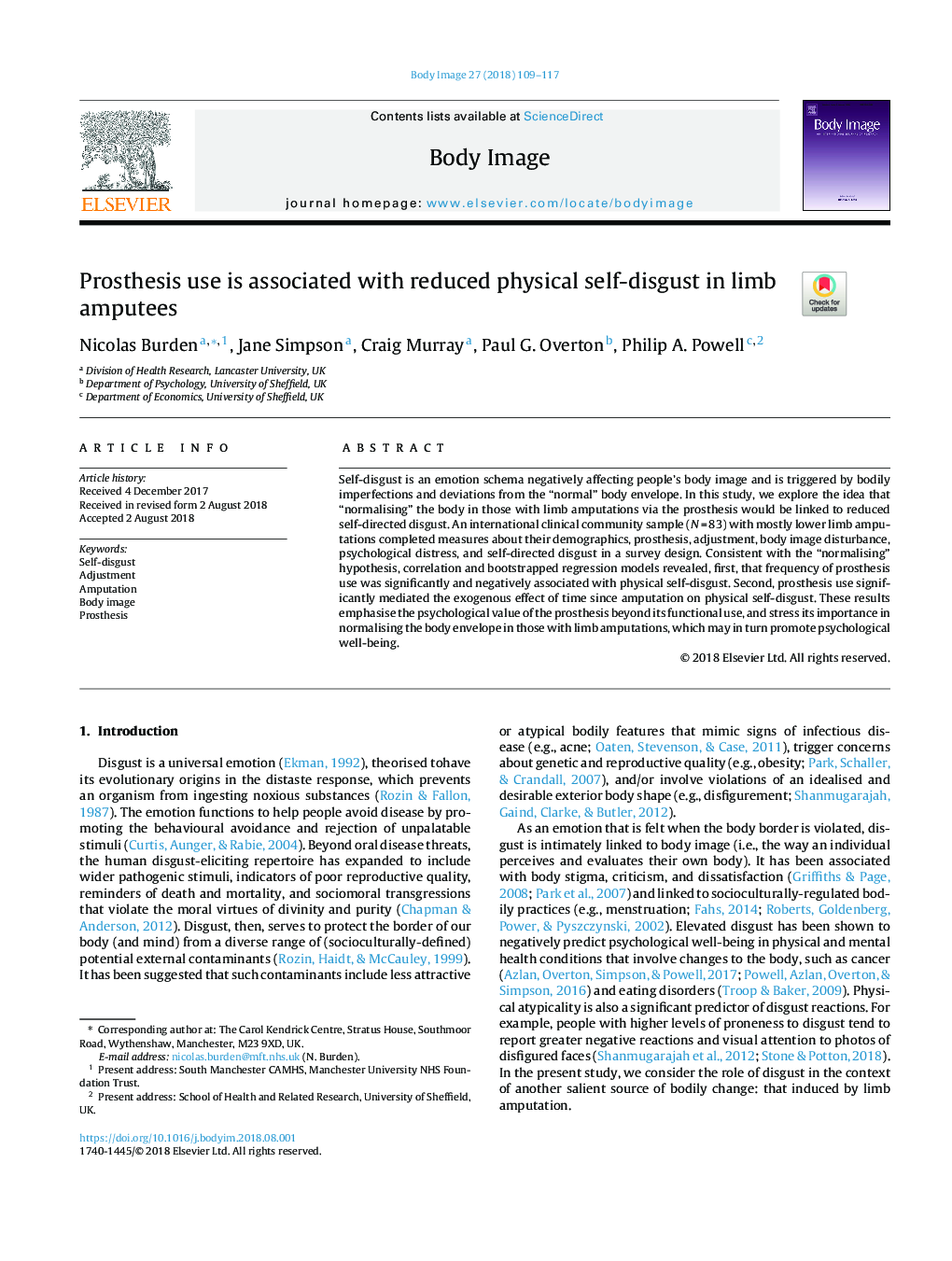| Article ID | Journal | Published Year | Pages | File Type |
|---|---|---|---|---|
| 11004454 | Body Image | 2018 | 9 Pages |
Abstract
Self-disgust is an emotion schema negatively affecting people's body image and is triggered by bodily imperfections and deviations from the “normal” body envelope. In this study, we explore the idea that “normalising” the body in those with limb amputations via the prosthesis would be linked to reduced self-directed disgust. An international clinical community sample (Nâ=â83) with mostly lower limb amputations completed measures about their demographics, prosthesis, adjustment, body image disturbance, psychological distress, and self-directed disgust in a survey design. Consistent with the “normalising” hypothesis, correlation and bootstrapped regression models revealed, first, that frequency of prosthesis use was significantly and negatively associated with physical self-disgust. Second, prosthesis use significantly mediated the exogenous effect of time since amputation on physical self-disgust. These results emphasise the psychological value of the prosthesis beyond its functional use, and stress its importance in normalising the body envelope in those with limb amputations, which may in turn promote psychological well-being.
Related Topics
Health Sciences
Medicine and Dentistry
Psychiatry and Mental Health
Authors
Nicolas Burden, Jane Simpson, Craig Murray, Paul G. Overton, Philip A. Powell,
